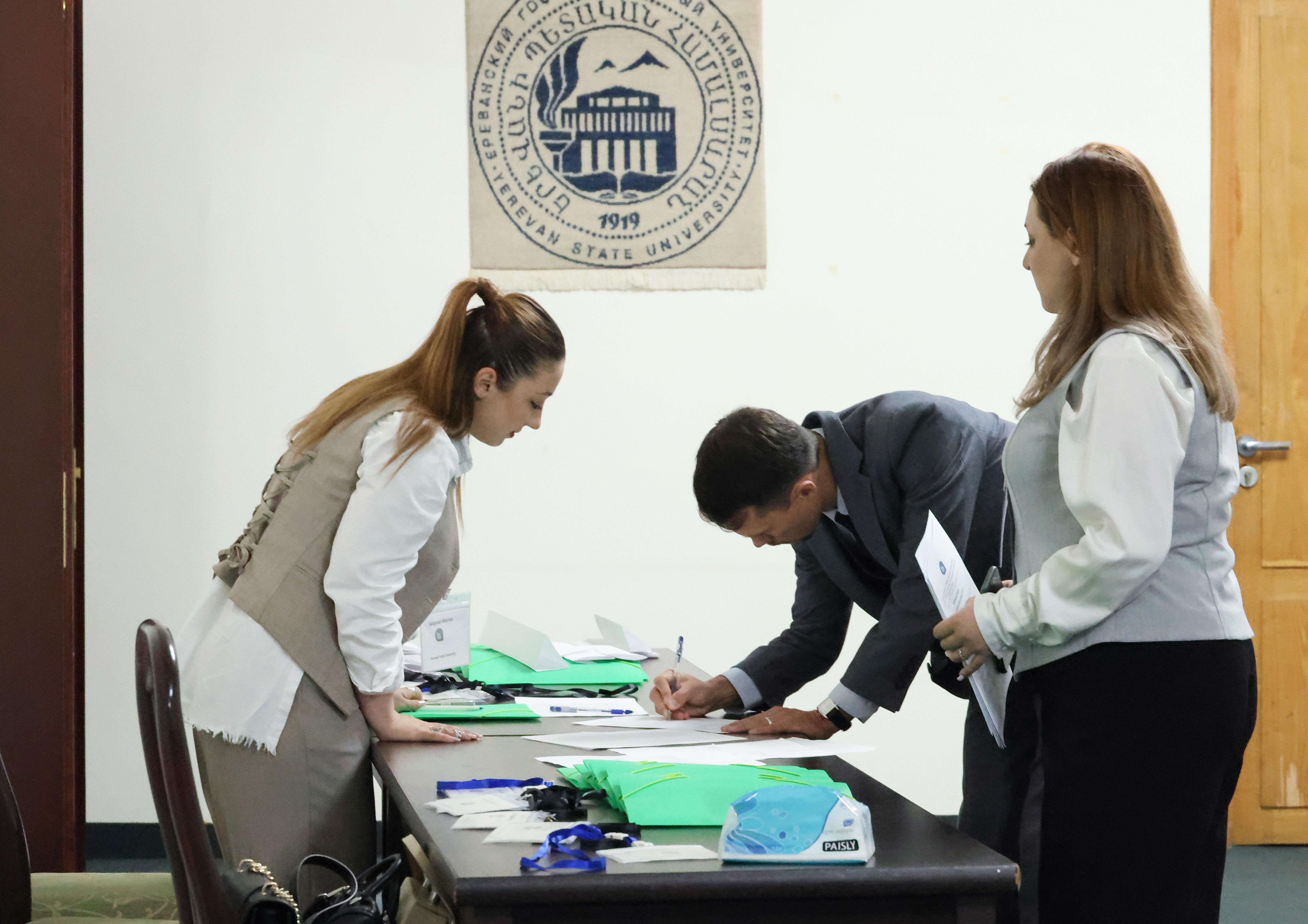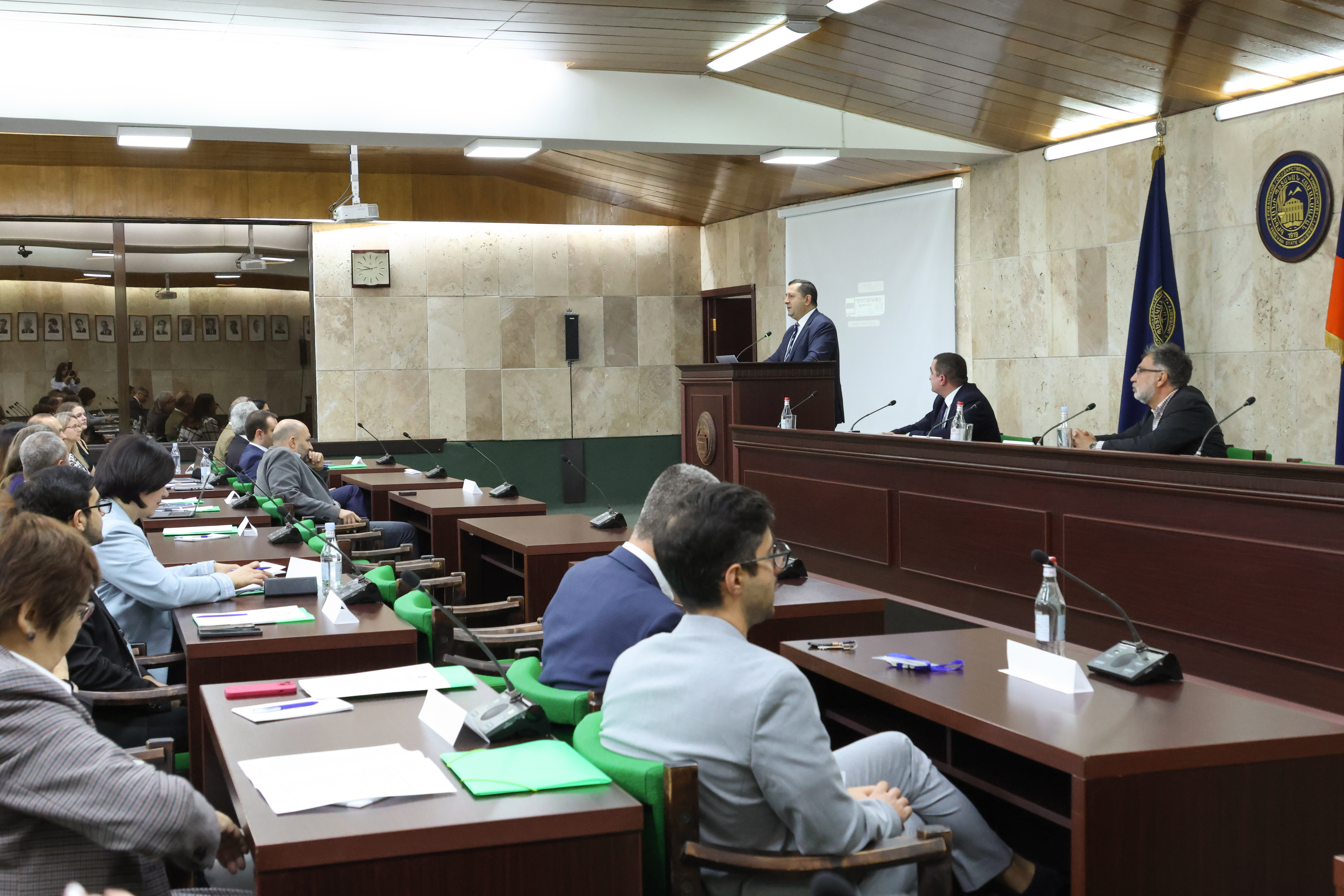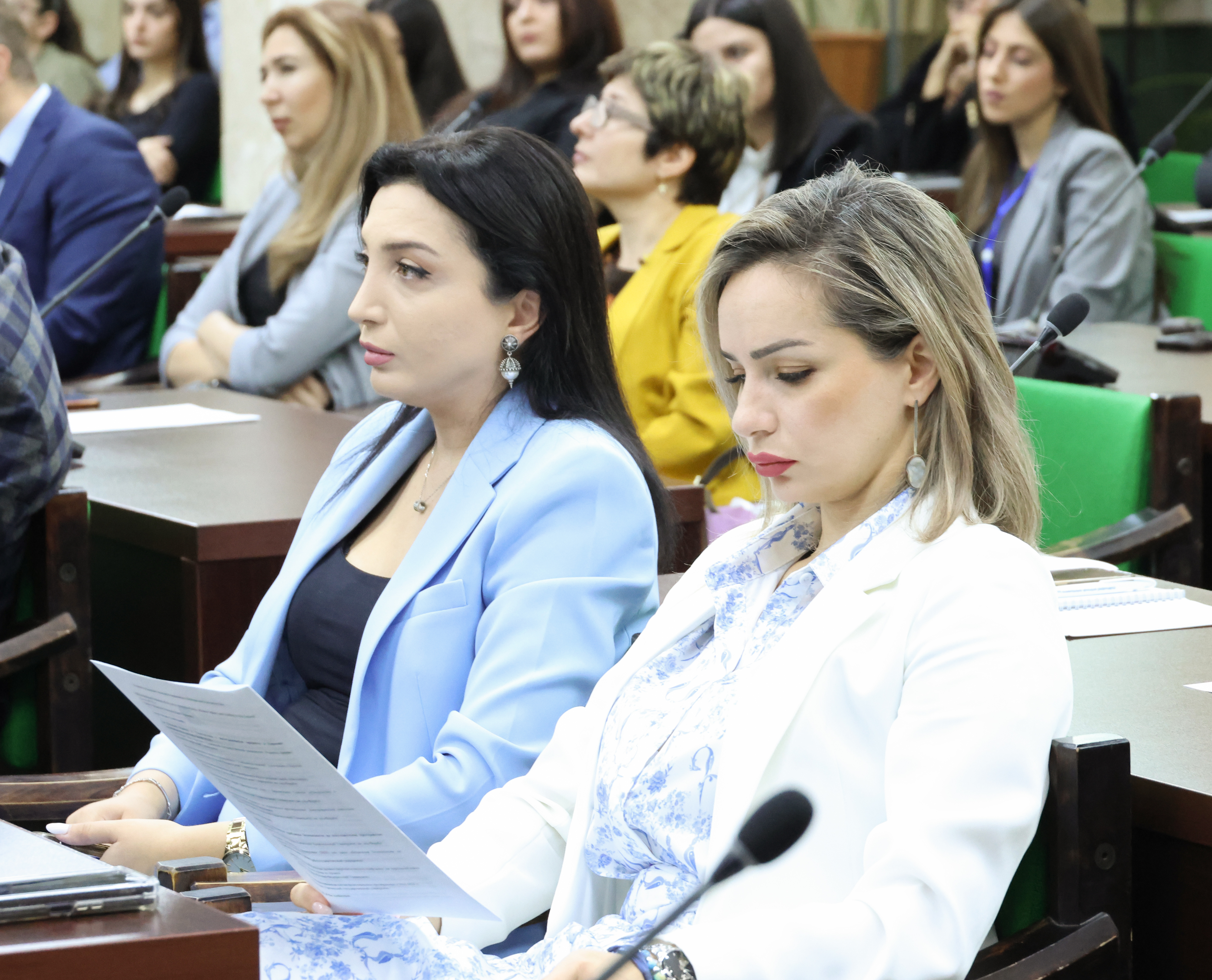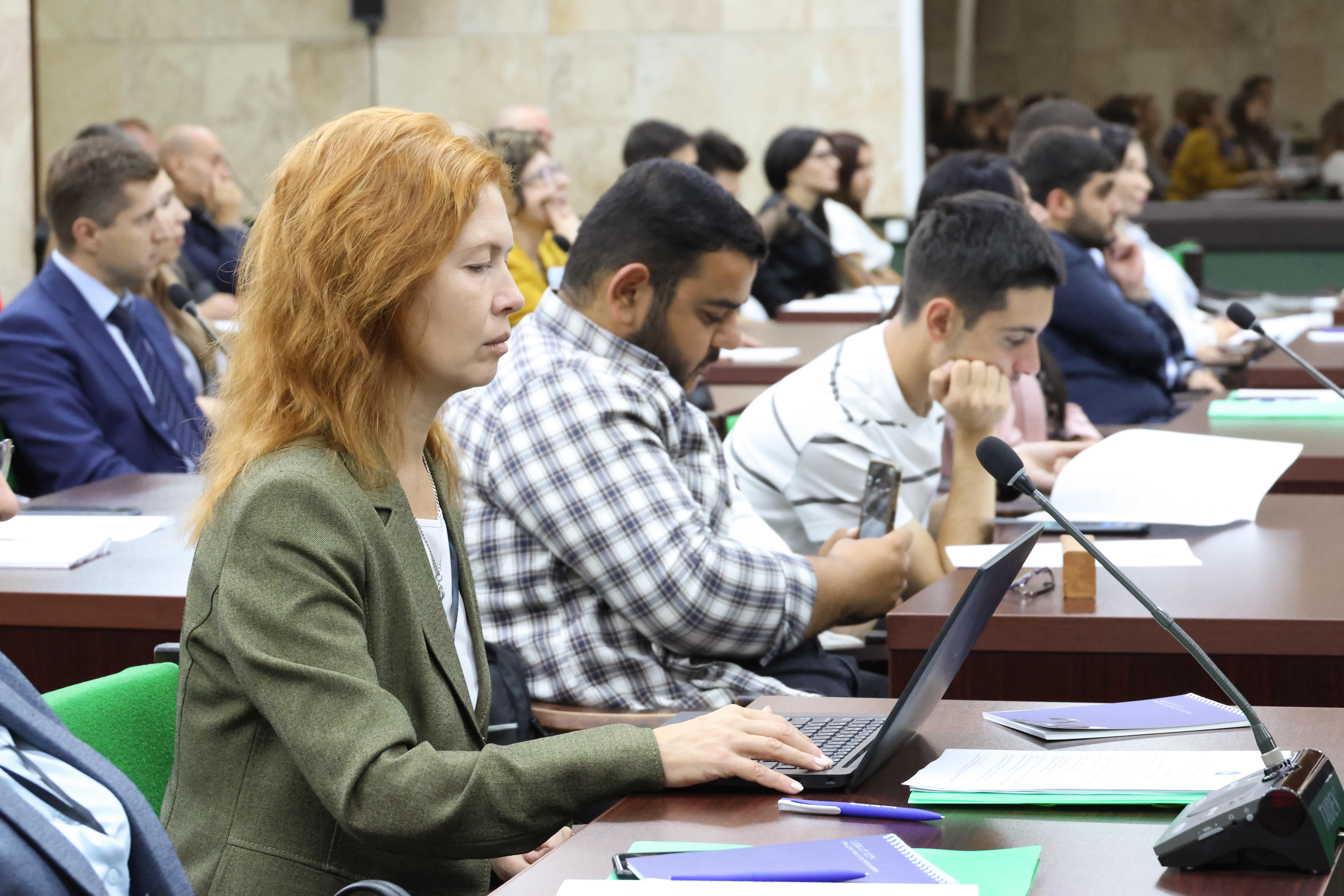October 11, 2024 | 15:30
International cooperation
Events
Policy
Scientific perspectives on geopolitical developments: International conference held at YSU
An international conference titled "Geopolitics of Eurasian Crossroads: Transformations, Challenges, and Development Paths" was held at YSU, featuring scientists from 10 countries. The speakers addressed key topics related to international relations, including international law, diplomacy, conflicts, migration, and other significant issues.
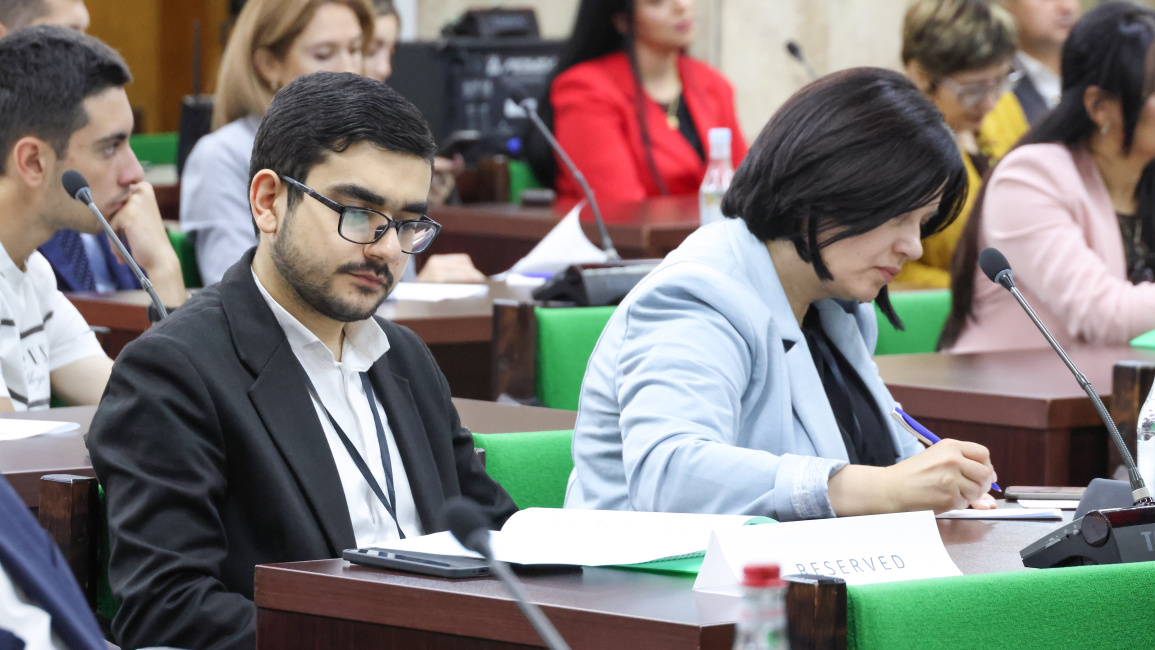
YSU Rector Hovhannes Hovhannisyan welcomed the conference participants, emphasizing that the university has recently hosted scientists from various countries and organized numerous international conferences, the effectiveness of which is evident.
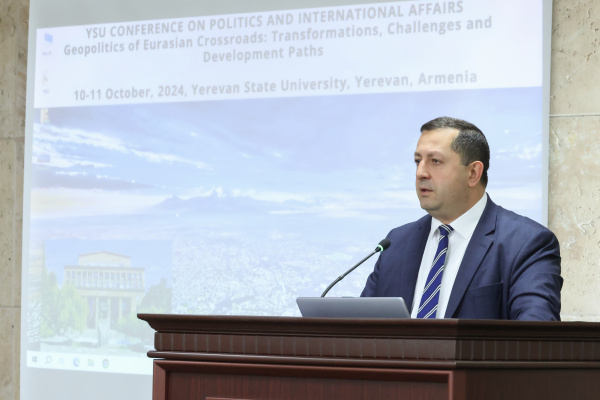
Highlighting the conference's significance in the context of current geopolitical changes, the YSU rector noted, "Every day, we witness wars, conflicts, and challenges around the world, and we may think these issues won't directly impact our country. However, looking at the events of 2020 and beyond, it's clear that a change in one part of the world can affect the entire globe. As an academic community, we must commit to researching and analyzing these issues, reflecting our findings in scientific articles to help policymakers make informed decisions."
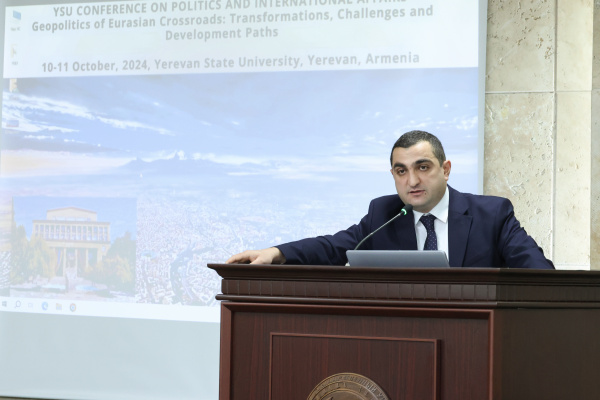
Tigran Yepremyan, Dean of the Faculty of International Relations, commented on the conference title, highlighting that the topic was selected taking into account the fundamental transformations taking place in our region and across Eurasia. "This conference will be an ongoing initiative. Each year, we will focus on a key topic of international importance, within which we will address common issues alongside scholars from around the world."
Professor Georgi Derluguian from New York University in Abu Dhabi presented his paper titled "World Wars as a Social Mechanism in the Modern World System (1550-2023)."
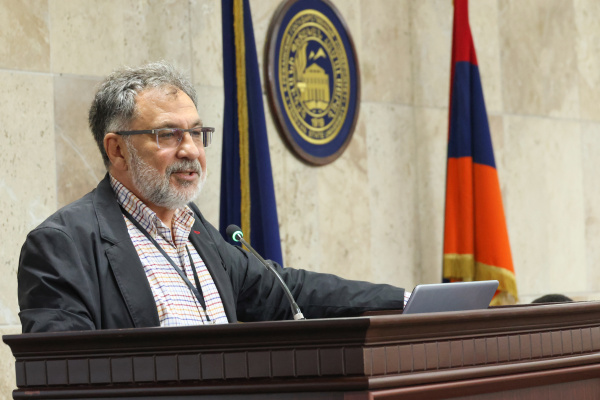
He noted that the core of his study is the Bronze Age, as geopolitics originated during that period. "At that time, one of the main activities was trade between distant regions. This process of organizing trade led to the establishment of states and diplomacy, emerging from the negotiations required to address various issues and ensure successful outcomes."
Notably, scholars from North America, Europe, China, Russia, and the South Caucasus participated in the conference.





